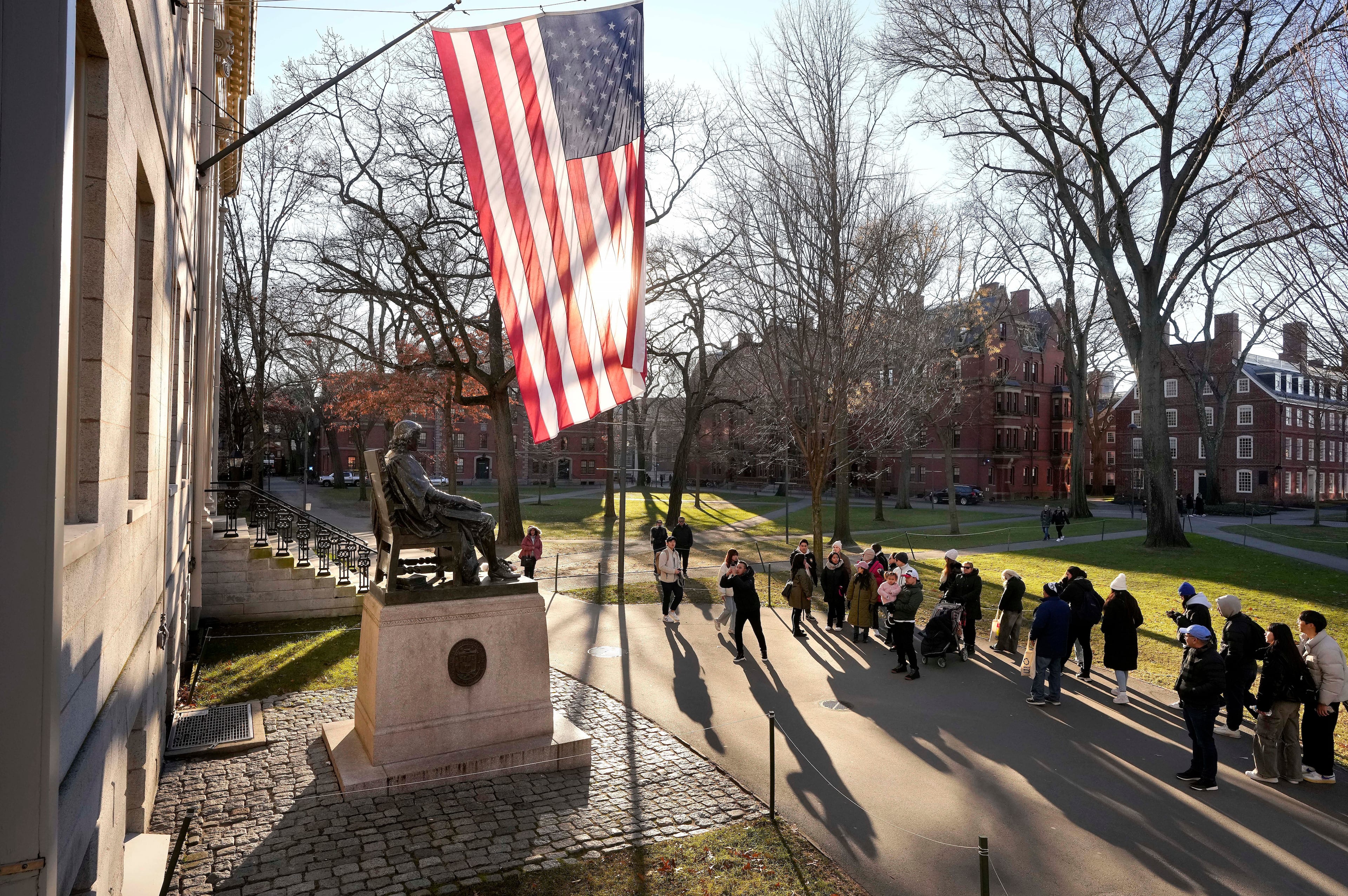Georgia joins five Southern states to form new accreditation agency

While most students are enjoying summer break, their universities remain busy. In this edition of the AJC On Campus, Georgia is joining a movement to shake up the accreditation system that has long been the model for American higher education.
A new model for quality assurance
To assure basic quality across U.S. universities, they cannot receive federal aid without meeting the standards of private, federally recognized accreditors. As we’ve seen in recent years from the revocation of accreditation of some Georgia colleges, such as Morris Brown, it can cripple a school.
Accreditation, according to the U.S. Department of Education, arose as a “means of conducting non-governmental, peer evaluation of educational institutions and programs.”
In Georgia and five other Southern states, the government could soon become more involved in those evaluations. Late last month, the University System of Georgia announced it was joining the university systems in Florida, South Carolina, North Carolina, Tennessee and Texas to form the Commission for Public Higher Education.
The new agency will create an accreditation model that will “focus on academic excellence, student outcomes, process efficiency, and the pursuit of quality assurance,” the USG said in a news release.
It’s a development that follows recent attacks against accreditors as conservatives like Florida Gov. Ron DeSantis have accused them of being “woke” while criticizing their diversity, equity and inclusion standards. DeSantis previously clashed with the Decatur-based Southern Association of Colleges and Schools Commission on Colleges, the accreditor for universities in Georgia and throughout the South. In 2021, SACSCOC flagged a potential conflict of interest with a candidate for the Florida State University presidency; one year later, DeSantis signed a law requiring universities to periodically switch accreditors.
Florida sued the U.S. Department of Education in 2023, arguing the federal accreditation system took power away from Congress and gave the private agencies “near limitless power over state institutions.” A federal judge dismissed the case last year.
The Commission for Public Higher Education appears to be the culmination of an effort hinted at in May when The News and Observer reported the president of the University of North Carolina System was “exploring the idea” of partnering with other “major” public university systems to create a new agency.
While it will require federal approval, an executive federal order suggests it will have backing from President Donald Trump’s administration. In that April order, Trump referred to accreditors as “gatekeepers” that had “abused their enormous authority.” His order then called on U.S. Secretary of Education Linda McMahon to “resume recognizing new accreditors to increase competition and accountability.”
USG Chancellor Sonny Perdue said in a statement he looks forward to working with neighboring states, arguing the commission will “keep Georgia’s universities among the best in the nation by focusing on high standards and real value for students and families.”
It’s not yet clear what the standards of the new commission will be and how those will differ from other accreditors. But some worry the effort will lead to government interference in higher education.
“It’s clearly an attempt by these states to control their university systems,” said Matthew Boedy, president of the Georgia chapter of the American Association of University Professors. “It seems to be people who don’t like the rules so they’re gonna take their ball and go home. And now even further, they’re setting up their own referee system because they don’t like the game.”
The Big Beautiful Bill could mean big changes for colleges
President Donald Trump on Friday signed into law a sweeping piece of legislation that will have a significant impact on higher education.
The “Big Beautiful Bill” ends one student loan program and puts a cap on borrowing for another.
Read more here about what it could mean for college students in Georgia.
Georgia college picked for air traffic controller program
Middle Georgia State University will be helping the Federal Aviation Administration address the national shortage of air traffic controllers.
The FAA has authorized seven schools nationally to offer programs as it tries to get more Americans into air traffic facilities and on the job faster. This is the first program authorized in Georgia.
In a Wednesday news release, U.S. Transportation Secretary Sean P. Duffy said the program will be “key to building a next-generation workforce, reducing delays, unlocking the future of aviation.”
“As Georgia’s flagship aviation school, we take seriously the responsibility of equipping students with the knowledge, skills and credentials needed for safe and efficient air travel,” said university President Christopher Blake.
Delta hospitality program

Delta Air Lines is deepening its investment in the University of Georgia. The Atlanta-based company has a long-standing partnership with the state’s flagship university and announced this month that it will be investing $5 million to support the school’s hospitality program.
UGA’s hospitality program is already ranked among the top for public colleges in the country. And with the money committed by Delta, the school said in a statement it will renovate its Center for Education and Hotel, providing it with “a state-of-the-art event management lab, beverage management lab and a cutting-edge, fully functional teaching kitchen.”
UGA President Jere W. Morehead said the investment “will ensure our students have access to hands-on learning opportunities that will position them at the forefront of this important industry in Georgia.”
Student spending

A new study found that some Georgia colleges spend more money on their students than most U.S. universities.
Using federal data, the Studocu analysis determined that Emory University was the highest spender in the state, investing nearly $29,000 in academic support per student and more than $16,000 in student services per student. (Emory has the largest endowment of any Georgia college or university, at more than $10 billion, according to the most recent federal data available.) The totals greatly outpace the national median of roughly $2,900 and $4,800, respectively. While the study finds a correlation between spending and graduation, it concedes that there are numerous other factors which can impact graduation rates.
Emory, for instance, has a 92% graduation rate. But while Augusta University is Georgia’s second-highest spender on academic support per student, the study shows the school has a graduation rate of 49%.
Fighting addiction
Georgia Southern University has received $2.2 million to launch a two-year initiative aimed at reducing opioid-related harm in rural communities.
The funding was awarded by Georgia Opioid Crisis Abatement and will focus on “justice-involved individuals,” such as incarcerated people, their families and law enforcement personnel. Research shows that incarcerated populations experience significantly higher rates of substance abuse than the general public.
Kathryn Stewart, the project lead, said it will bring tools and support directly to people who need them most. “Rural county jails and first responders have long been doing what they can to respond to the opioid epidemic, but many simply don’t have the resources to implement proven strategies,” she said in a news release.
Growing Gwinnett

Georgia Gwinnett College announced last month that it had seen growing enrollment yet again.
Its summer classes started on May 19 with 600 more students enrolled than last summer. The school said the numbers reflect it is “continuing its trend of consistent growth for the eighth consecutive semester.”
Presidential anniversary

This summer marks the five-year anniversary of LaGrange College President Susanna Baxter. She took over during the COVID-19 pandemic, becoming just the second woman president of the private college located an hour outside Atlanta. Ironically, her female predecessor Daisy Davies also led the school during a pandemic, as the Spanish Flu hit the U.S. during the middle of her tenure a little more than a century ago.
If you have any higher education tips or thoughts, email reporter Jason Armesto at jason.armesto@ajc.com.



